An Interview with Sandie Shaw
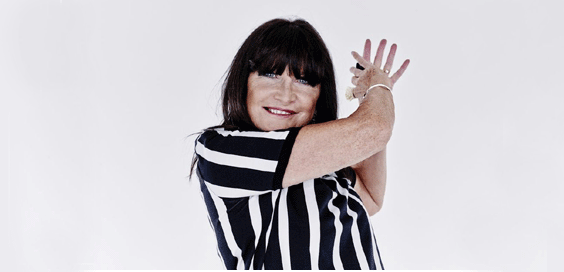
By Lee Puddefoot
Sixties icon Sandie Shaw talks about her life and career as she releases a major retrospective of her work…
You are reissuing your entire back catalogue through Union Square – how did that come about?
They approached me ages ago. But I licensed it to EMI and it was a terrible experience. EMI can’t look after the catalogue. It’s not what they do, they just use it as a cash cow. So I went back to Union Square Music and said I’m still interested. I’ve always owned and produced and recorded my own records. I’ve done my own press and designs for my own records. It was a very original way to do it in the sixties.
Putting together the albums, was it interesting going back through; listening to the singles – how was the experience?
I really wanted to familiarise myself with the tracks because I had a big distance between then and now. I felt I could be objective and I was curious. And I was just thinking that I can’t believe I did this. I was only young and I was doing all this stuff. Don’t know where I got the courage to do it. I had such bravado at the time.
Were the early days a whirlwind experience?
That’s how you want it when you’re young. You haven’t got time to hang around. If you don’t get immediate gratification you move onto the next thing. So it really suited me and I think we would put records out every two months sometimes. Recording was a new art form then. I just loved being in the studio. I wanted to spend as much time in the studio as I could. It was so creative and there was so much to say and do. You didn’t need the breaks in between. It wasn’t hard work, it was just great. It was a great way to spend your time because there was so much to do. The grind stuff that you have to do now wasn’t there. All that promotion and sticking make-up on and having to do branding and all that stuff, it’s just not music. You spend very little time nowadays doing anything that’s to do with music. It was much better then.
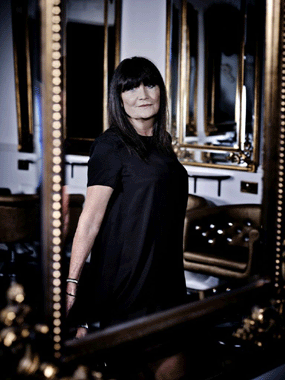 “I wasn’t grown up”
“I wasn’t grown up”
Did the digging introduce any nostalgia when going through the tracks?
It was bittersweet. A lot of songs my friend Chris Andrews wrote. I picked songs of his that mirror what I was going through at the time. So it’s almost like a diary.
Listening to the first three albums there seems a sense of maturity and seriousness developing. Was that intentional?
I was mainly a singles artist and didn’t care about the album so much. The first album I did was very much my thing. The people around me didn’t realise they were onto something that made money. So as soon as they found that out the more they wanted to get involved. So I was pushed to do some material that I didn’t really like. I wasn’t grown up and I still sound young, but trying to sing these grown up songs. It was very spontaneous. Let’s just do it. There was no thought that someone would be listening to this 50-years later. At the time I thought it was great that someone was listening to it, let along still listening to it. Recording as a living didn’t exist in this country really. You were making up something as you went along. I thought when I hit 24 my life would be over anyway. And I never thought any further than that. I used to re-write all of Chris’s lyrics. He’d start off with a bit of a lyric and I’d say take that off or add that. Or I’d say I think the chorus should come first. You start with your statement so I had this big thing. I had to argue with him, I wanted the ‘ta-da’ first.
How was it playing behind the Iron Curtain?
In the sixties we started off with the Common Market. So I found myself catching the early morning train over to Munich and Paris with business men who were being sent there to sell manufacturing. I’d be travelling on this side of Europe from Paris and I’d be singing in all these different languages. I became what’s known as a domestic artist as they had cultural laws which meant they were only allowed to play a certain amount of outside music. So because I sang in their language I was considered to be one of their artists. So I was massively successful because of that. Then I did Eurovision and it was in Vienna and was on in what was then the Iron Curtain. Because of satellite transmission all the eastern European countries and Russia saw it. So it opened up this huge thing. I was the first person to visit behind the Iron Curtain. I always had to go with a government agent at all times. It was very James Bond actually. If we wanted a conversation we had to go in the bathroom and put the shower on. It was very grey and bleak and they were so happy to see me because I represented freedom and democracy. All the things they didn’t have. As far as the Russians were concerned I represented danger.
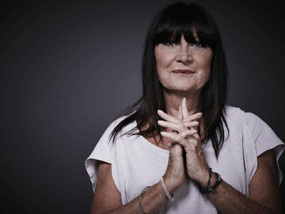 “Takes a lot of energy”
“Takes a lot of energy”
What was it like being in the spotlight from a young age?
It was part of growing up. t’s what part of being grown up is. I suppose it’s like going to university, being with all those other people all of a sudden.
You’ve done a lot outside music.
In the late sixties and the seventies I did a fashion label for three years: Seasonal collections, mid-season collections. I did shoes, which was ironic because I didn’t wear them. The first press I got was modelling. The fashion editor took me on between being ‘discovered’ by Adam and my first hit and was discovered as a face. I did lots of modelling for high fashion magazines, so I was always in the fashion thing. I did my own designs which went into the papers. So it was quite a natural thing to actually start doing my own range. Then I didn’t want to do it any more. It was the right thing to do then. To keep coming up with designs takes a lot of energy. So you couldn’t really do the two careers side by side so that’s why I stopped. And I got pregnant, which kind of gets in the way. If I went on Top of the Pops they made me sit on a stool.
When was it that you converted to Buddhism?
I was married to a fashion designer who started to take over my life, my accounts and my legal stuff. In those days people didn’t realise that when you married everything became joint. Joint account and joint affairs. His name had to appear on everything. You have no idea what it was like. I belonged to my husband at the time and I had to do as my husband said, unless I came up for some very good reason why not to. Those were the times. That’s what had happened. You can imagine how rich I was at that time and because he took over, he mismanaged everything and mismanaged his own business, which went bankrupt and lost all of my money. Then all the lawyers and accountants took his side, because that’s what they did. So I ended up with nothing. Just my daughter. I had to look after her on my own and I didn’t have a penny. So it was very frightening. Since I was 17 my life had been very different, so I didn’t learn the kind of things you learn then. Like how do you get the electricity switched on. I had no knowledge of what to do. Really I was quite ill, the stress of it all and the worry of what happened. I was worried he’d be taken to jail so I would be giving him more money to stop him going. So eventually I became a Buddhist and was able to say to him, I want you to leave.
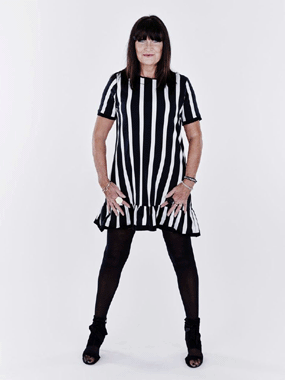 “I hurt him to the core”
“I hurt him to the core”
When did that moment come?
I didn’t know what to do. I was stuck and completely and utterly bullied by him. You can’t imagine sitting here now, as I’m completely different. A friend of mine at the time, Anne Odell, a musician who was doing arrangements for Bryan Ferry at the time said you really need to empower yourself. I said, please tell me what to do. I’ve not been a bad person and I don’t know why all these terrible things are happening. So she said alright, I’ll teach you Buddhism and you’ll be able to know how to change things. So the first thing I did was to ask Jeff to leave. He wouldn’t go, it took ages and ages. He wouldn’t divorce me until I was 8 months pregnant and with my new partner. I wanted my daughter to have my husband’s name. It was only when he went to see Kramer Vs Kramer that he came back and said alright you can have a divorce. Then I married Nick my second husband. We’re no longer married but we’re still close. He’s like a brother to me, or what I imagine a brother to be. But around that time he knew Geoff Travis who had signed the Smiths and knew BEF, so that’s where that came from.
What was it like working with The Smiths?
When I first heard them they didn’t have ‘This Charming Man’ out. They were just this wannabe band from Manchester that wrote letters that were flattering really. I used to be really embarrassed by them. I’d have a go at him (Morrissey) saying they were silly fan letters. I know I hurt him to the core, Morrissey, by saying that. It wasn’t meant like that and I so regret it. I saw a piece of film with me saying this on television with him sitting next to me. You could see his little heart go and I wished I hadn’t said it and could rewind and not say it. I didn’t actually mean it. I was just so embarrassed and didn’t know what to say. Then ‘This Charming Man’ came out and then people started to know them. We did three tracks together and a few gigs together. It wasn’t like anything I remember. I went on stage in Manchester and it was full of these guys chanting and every single song they knew backwards. The whole audience sang along with them and they introduced me and I thought, I can’t go on, I can’t. Johnny just stamped his foot and said come out here and just sing. It was lovely. He’s such a great musician and is adorable – you don’t find many people like that. He’ll probably hate me saying this, but as a guitarist, like when Jimi Hendrix started playing, everyone played differently after that. As soon as Johnny Marr started playing, everybody if they know it or not refer back to that. It’s like we all tried to sing like Roy Orbison or copy the Everly Brothers if we wanted to do harmonies. That whole generation of people have been influenced by the way he played guitar, I think.
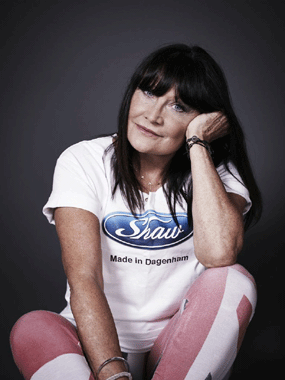 “People like to see empowered women”
“People like to see empowered women”
What do you think about modern female singers?
I was watching an interview with Jane Torvill recently and her big thing was, because of her business she didn’t try and have a baby until she was 40. She found out she couldn’t have children and had this terrible drama during that time. It was obviously really difficult for her. I look at her and think about modern singers and wonder if they are doing that. Its great that Adele has broken that mould, and Lilly Allen. But for the most part I really worry that they are going to do that. I think they are going to forget that they are females and you can be different and still equal – that bothers me. We are different and that’s what makes our music so great, we are great. I think the current women are astonishing. I’ve such admiration for them but I don’t think they are very sophisticated as they present themselves. I know that they are not. People know that sells records. People like to see empowered women. There’s a lot of that going on. A lot them don’t know about business and that’s one of the things I want to do in the featured artist thing is to pass that on. To say, these are the facts, you must know them because you are responsible for your career. You’re the one thing that’s always gonna be there. Agents, record labels managers all those people will come and go. You have to know what your direction is. You can pass that on to the people around you so they can implement it for you so it’s not coming from them. You’re not the puppet in the middle, it’s the other way around. You direct them with your vision. The best music comes from your sense of integrity.
‘The Very Best of Sandie Shaw’ is out now


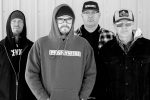
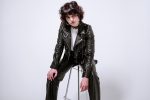



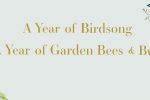

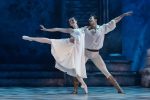
INTERVIEW: Sandie Shaw on divorce, Buddhism, The Smiths and more … http://t.co/haS223evBO #morrissey